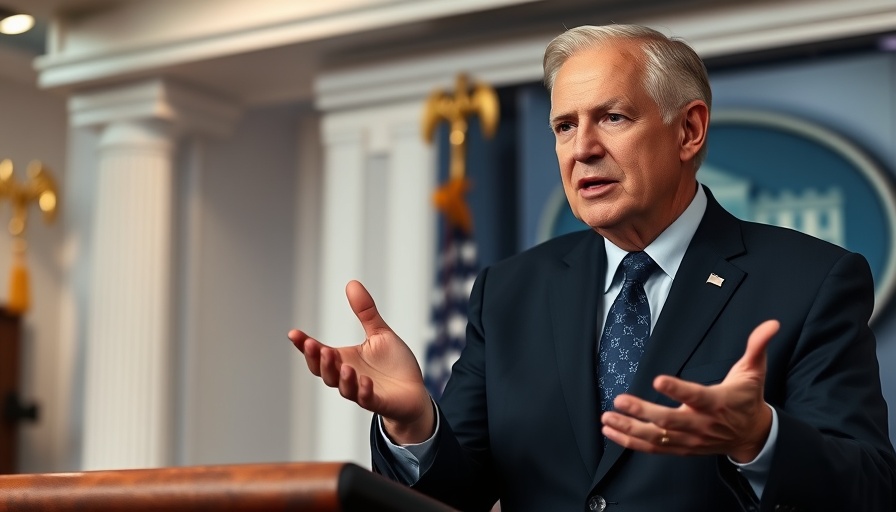
A Bold Move in International Trade: Trump’s Tariff Letters
In a surprising turn of events, President Donald Trump has announced plans to forego long negotiations and instead send direct letters to specific countries outlining new tariff rates. This announcement comes ahead of the July 9 deadline for his temporary halt on reciprocal tariffs, a decision that could reshape U.S. trade relations significantly.
Understanding the New Tariff Approach
During an interview on Fox News's Sunday Morning Futures, Trump explicated his proposed method: by sending letters, he aims to communicate clear tariff rates without further discussions. "Dear Mr. Japan," he remarked in a hypothetical scenario, setting a straightforward tone for the future of trade negotiations. This indicates a transition from carefully crafted diplomatic dialogues to a more unilateral approach, where each country’s treatment of U.S. trade policies would be the primary determinant of their tariff rates.
The Implications for Global Trade Relations
Trump’s decision signifies a potential hardening stance toward some trade partners, particularly after he declared an end to negotiations with Canada over its digital services tax. This unilateral communication of tariffs could disrupt established trading norms, emphasizing a transactional approach over collaborative negotiations. The resultant chaos may be felt by countries that previously enjoyed preferential trade status, prompting them to reassess their strategies regarding the U.S.
What It Means for Businesses
For American businesses, especially those dependent on international supply chains or exports, understanding the forthcoming changes is crucial. Trump's new strategy could introduce an unpredictable environment regarding commodity pricing and market access. Companies in the tech industry, for example, need to prepare for potential impacts on their operational costs and competitiveness. Understanding these shifts is vital for crafting a responsive business strategy to navigate the evolving trade landscape.
A Path Forward for Stakeholders
Business leaders should brace for impending changes as letters indicating specific tariff rates are sent out. These rates may significantly affect sectors ranging from manufacturing to agriculture, depending on the tariffs applied. Stakeholders need to remain informed and agile to mitigate risks associated with increased tariffs, especially in regards to supply chain disruptions and pricing strategies.
In conclusion, while the Trump administration's approach may seem radical, it serves as a wake-up call for businesses to stay ahead of potential changes in the global trade landscape. Preparing for the implications of these new tariffs is essential for thriving in an increasingly competitive economy.
For those keen on understanding the unfolding business landscape, keeping track of developments and adjusting strategies proactively can spell the difference between thriving and merely surviving in these uncertain times.
 Add Row
Add Row  Add
Add 



Write A Comment